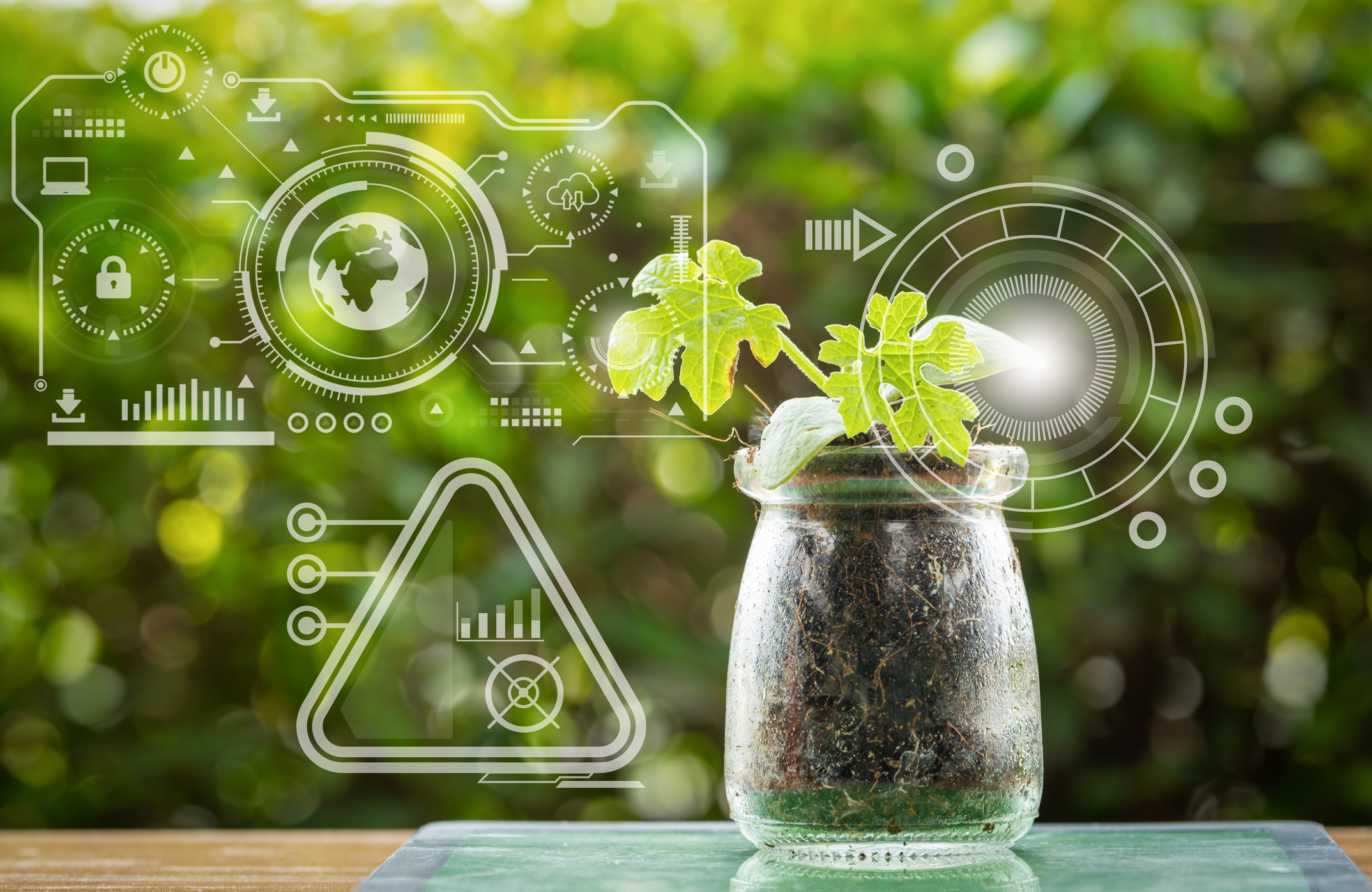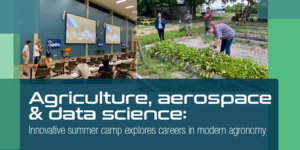By 2050, the global population will reach 9.8 billion. This increase will place immense stress on the world food supply, as the demand will be an estimated 60% higher than it is today. The challenges will be exacerbated by climate change, soil degradation, and urbanization, shrinking the availability of farmable land and placing the responsibility of a solution on the shoulders of youth who’ve yet to enter the workforce.
Today’s agriculture students are the industry leaders of tomorrow. And they must begin to learn new and innovative production methods now.
Digital agriculture involves the interdisciplinary development of technology to collect, integrate and transmit data into decision-making tools. Ultimately, the adoption of digital agricultural practices will improve food and fiber production by allowing farmers to make better and more precise management decisions. The result will be an ability to produce more food on less land.
An innovative summer camp
With funding from a grant awarded by the United States Department of Agriculture’s National Institute of Food and Agriculture, in summer 2022, Middle Tennessee State University (MTSU) hosted a group of high school students for a three-week, residential digital agriculture summer camp. The inaugural group of students at the Digital Agriculture Summer Camp expressed interest in computers, engineering, farming and flying drones.
Farming has long been associated with Agriculture, Food and Natural Resources. But this camp also included content and experts from the information technology, aerospace, and data science industries. After learning to program computers, campers flew drones over crop fields to collect data and used that information to recommend on-farm practices that would decrease in.puts while increasing yield. The integration of data science, aerospace technologies, and precision agriculture enabled students to become problem solvers while developing skills that could be useful in their homes and communities.
Putting it all together with precision agriculture
The overarching theme of MTSU’s digital agriculture camp was precision agriculture. As a STEM-based, multidisciplinary farm management concept, precision agriculture utilizes high-resolution remote sensing techniques to study crop and soil variations and to apply farm inputs at the right place, at the right time, and in the right amounts.
Significant advancements in technology and information systems have greatly enhanced the capacity and capability of precision agriculture in the past decades. Particularly, the incorporation of advanced data analytic algorithms has become standard in most application and research spaces. Therefore, while the camp was grounded in the practice of growing crops, time spent in data science and aviation laboratories — designing, building and programming drones — served equal value.
Campers were assigned to groups, and each group focused on a different crop. Throughout camp, they used different types of equipment to collect soil and crop data with the charge of identify.ing nutrient deficiencies and recommending nutrient applications.
Among the technical and employability skills developed, agriculture students:
- Considered safety in precision agriculture systems
- Calibrated, troubleshot and repaired precision agriculture equipment
- Designed and programmed an automated unmanned aircraft flight
- Captured agricultural field data using a multispectral camera on a drone
- Used computer spreadsheet applications to record and analyze agricultural field data
- Identified the advantages and disadvantages of analytical methods
- Interpreted data and communicated results in written and verbal formats
- Made data-driven agronomy recommendations
Each day began with a goal-setting session, followed by integrated learning activities and explorations. Nightly activities assisted campers in developing interpersonal skills. And they were given time to work in their project teams. The camp culminated in a celebratory closing session, with each group presenting what they learned to their peers, families and other invited guests.
What did we learn?
Collaborating with faculty across disciplines was important. In the beginning, we planned in silos, assuming the connection between agriculture, aerospace and data science would be organic. After reviewing planned daily schedules, we discovered we had to be more intentional about bridging the gap between the three fields to help students understand how they were interwoven. Planning in this way also helped prevent the duplication of content throughout the camp. What we didn’t do, however, was discuss the approach.
When asked how we could improve the camp for the following summer, a consensus shared by campers was less talk, more action. College faculty receive far less pedagogical training than secondary teachers. As such, they lecture frequently. In a nonformal camp setting, students want to receive information in chunks. At first, they want just enough knowledge to play with new tools and develop ideas. And then later, once they need more information to proceed, that’s when they want more explanation.
One aspect of camp that students appreciated was interact.ing with other campers. One student wrote, “Having to work together to build our plans was fun.” And another wrote, “I enjoyed the social times with everyone and getting to know other campers.”
When asked about their favorite camping experience, all campers mentioned flying drones.
Nightly recreational activities included night hikes, go-kart races, swimming and playing games. These downtime activities were important for social development. Students reported they wanted to experience more field trips and non-academic activities. Of course, they also wanted an extended curfew (to stay up later), a later start time each morning, and more food options. (Apparently, the university cafeteria did not live up to expectations!)
Did it work?
At the end of the MTSU summer camp, students completed an evaluation form that asked about their perspectives on certain topics before and after camp. Our goal was to stimulate students’ curiosity about digital agriculture and related fields through experiential learning tasks in a low-risk, fun environment. And we wanted to know if they were more interested in pursuing postsecondary programs and careers as a result of camp.
For all three areas of focus (agriculture, aerospace and data science), interest in postsecondary education and careers increased.
Also, using evaluations designed by the American Camp Association, students reported improved proficiency in problem solving, teamwork and independence. While the evaluation results were positive, we will not know the mid-term impact for a few years. Will any of the campers pursue postsecondary education or careers related to agriculture, aerospace or data science? Time will tell. But if not, we feel certain they will remember their experience — and the importance of technology in food production — for a long time.
This project is supported by a grant from the United States Department of Agriculture’s National Institute of Food and Agriculture. Grant No. 2021-67037-35972
Chaney Mosley, Ph.D., is assistant professor of agricultural education at Middle Tennessee State University.
Song Cui, Ph.D., is associate professor of plant and soil science at Middle Tennessee State University.








